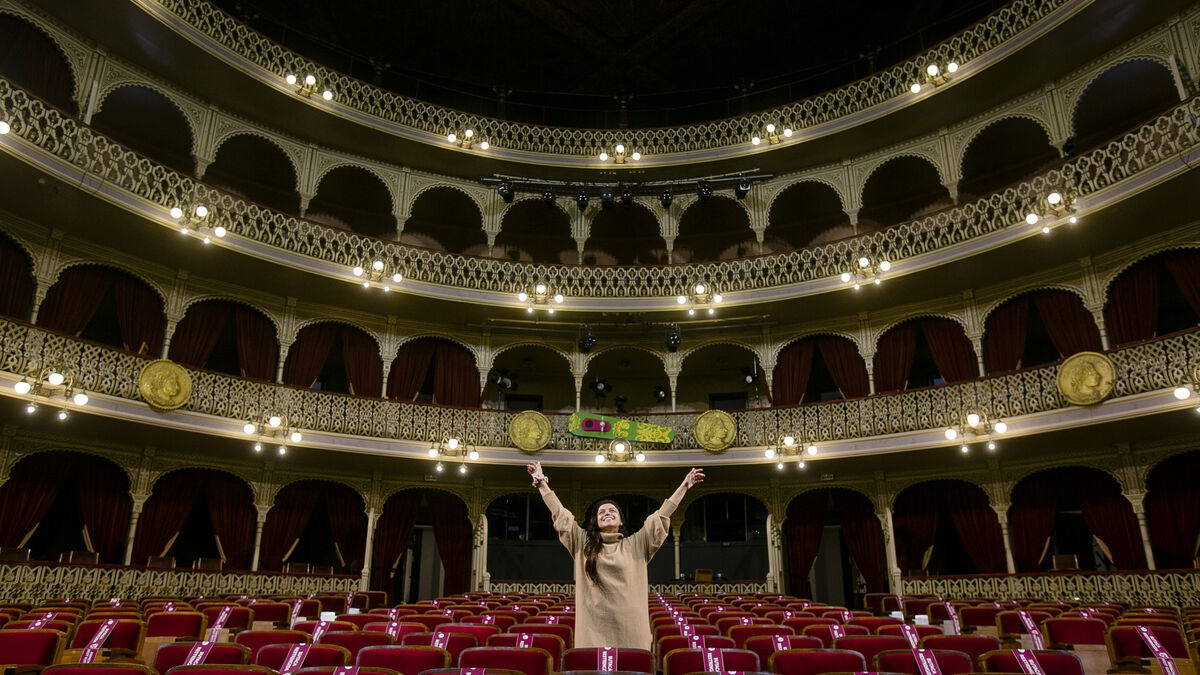Spring had not yet reached the calendar when everything stopped at the Falla Theater. In the Falla Theater, in all the theaters, in all corners of Spain. The musical trucks West Side Story They had been parked in the back of the coliseum for days, the assembly was practically ready, the press was even called for a graphic assembly pass that inaugurated a new season of theaters after the Official Contest of Carnival Groups ended … It was March 2020 … Today, a year later, spring finally touches Fragela Square.
And it is that if the irruption of Covid-19, and its consequent state of alarm, took the first part of the theater season of the year, culture revived in fall-winter 2020 with the reopening of the theaters, including the Gran Teatro Falla, which have seen their seats reduced and have introduced different health security measures since then.
So though the colosseum in Fragela square has been active during the last quarter of last year, it is to be celebrated that today, March 5, the curtain will rise again on a season that inaugurates the dance of an international vocation from Cádiz, bailaora María Moreno.
Is More (no) More the proposal with which the artist arrives in her city in which it will be the second performance of this piece premiered at the last Seville Flamenco Biennial and for which Moreno received the Giraldillo to the Magic Moment of the appointment.
A show that will start at 4.30 p.m. where tradition and avant-garde go hand in hand in a natural way both in Moreno’s dance and in the good work of his two collaborators in this show, the stage director Rafael Villalobos and the designer Palomo Spain.
In addition to the flamenco show by María Moreno, this weekend the Gran Teatro Falla is preparing to receive another of her illustrious sons, the pianist Chano Dominguez, together with the interpreter Martyrdom in the joint tribute that they dedicate to Bola de Nieve.
Snowball, this is the title of the album and the live tour, it was one of the events that was affected at the beginning of the pandemic. Thus, the concert of the man from Cádiz and the woman from Huelva was originally scheduled for March 23, 2020. Once the season was canceled, it was moved to November, as part of the Spanish Music Festival of Cádiz. However, the time restrictions of the shows that took place on those days caused the show to be canceled again. But it seems, the third time lucky and this Sunday, March 7, fans will be able to enjoy Chano and Martirio who meet again 14 years after Acoplados.
March 2021 will also return another of the postponed performances in the Falla, that of the Madrid actor Jose Sacristan and his long-awaited version of the work of Miguel Delibes Lady in red on gray background, the text that the Valladolid author dedicated to his wife when he became a widower, and that Sacristán will perform in Cádiz on March 12 and 13.
Every time performance canceled of the Choir of the University of Cádiz with The seven last words of Christ on the Cross by Haydn (March 27) and the opera Turandot (March 18) –that some incident had to suffer the season–, the month of March will culminate on March 24 with the Teatro de Piel cycle (which used to be held with the public on stage) with Not only do the blows hurt by Pamela Palenciano, a monologue that puts gender violence and abuse of power against the ropes, directed by Darío Valtancoli.
There will be Falla in March, yes, and in the month of April with the Camerata Atlántica (day 10); with Manolo Morera and Carlos Mení in I laughed, Leon the Musimal; with Luis Piedrahieta in It’s my word against mine (April 24); with the celebration for Dance Day (April 29) and with the gala in honor of Alicia Alonso (April 30) that will feature international stars from relevant Latin American companies and the National Dance Company of Spain, all it directed by Orlando Salgado.
There will be Failure in May with Yllana, Javier Ruibal, Rafael Álvarez The Wizard, Revolver, with Lola Blasco’s work on Little Women; with The soloists of London. And in June with La MODA and the play La Coaierta, with Gorka Otxoa, María Castro and Miguel Hermoso. Because, perhaps, they have given us back spring.
– .


/cloudfront-eu-central-1.images.arcpublishing.com/prisa/USHQACUE7RGPRLT7FHFKNRU4FA.jpg)